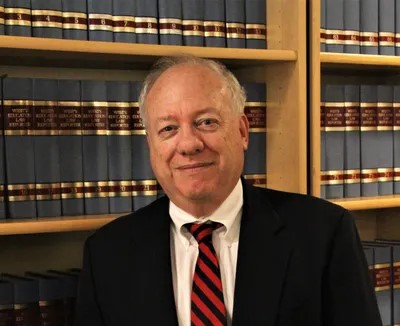Gun trusts represent a unique and specialized area of estate planning, catering specifically to the ownership, transfer, and inheritance of firearms under U.S. law. With the intricate interplay of state and federal regulations, particularly the National Firearms Act (NFA), establishing a gun trust can provide crucial benefits but requires careful legal navigation. For more detail, a webinar on this topic is available at the link below.
Related Speaker Series Webinar:
“Gun Trusts: The Lethal Pitfalls in Drafting and Firearms Issues in Probate”
February 5, 2025, 4pm ET
The Role of Gun Trusts
Gun trusts are legal instruments created to hold ownership of firearms. Unlike traditional trusts, gun trusts are designed to address specific legalities related to firearms, including those classified under the NFA, which covers weapons like machine guns, suppressors (silencers), and short-barreled rifles and shotguns. The primary purposes of a gun trust include:
- Safety and Legal Compliance: Ensures lawful possession and transfer of firearms, particularly NFA-regulated items, which have stringent use and transfer restrictions.
- Estate Planning: Facilitates the smooth transfer of firearms to beneficiaries without the legal complications that can arise from individual ownership.
- Avoidance of Probate: Allows firearms to bypass the probate process, thus maintaining privacy and avoiding potential legal challenges or delays.
- Share possession: Allows more than one person legally to possess NFA firearms.
- Protection from Prosecution: Protects spouses, other family members, and friends from prosecution for unlawfully having possession of or access to NFA firearms.
Legal Requirements and Pitfalls
The creation of a gun trust must adhere to both federal and state firearm laws, which can vary significantly. Some key legal considerations include:
- Eligibility and Ownership: The trust must be structured to comply with the NFA and state laws, ensuring that only eligible individuals have access to the firearms. This includes avoiding unlawful transfer or possession by prohibited persons, such as felons or those adjudicated as mentally defective. Unlike traditional trusts where the trust property is used by the beneficiaries of the trust, firearms can only be possessed and used by trustees of the trust.
- Documentation and Approval: For NFA items, the trust must obtain approval from the Bureau of Alcohol, Tobacco, Firearms and Explosives (ATF) and pay the required tax stamps. This process involves detailed documentation, including fingerprints and background checks for all trustees.
- Continual Compliance: Trustees must ensure ongoing compliance with the law, including the storage, transportation, and usage of the firearms. Failure to adhere strictly to legal requirements can result in severe penalties.
Drafting a Gun Trust
Drafting a gun trust requires precision and a deep understanding of firearm laws. Key elements include:
- Clear Designation of Trustees and Beneficiaries: The trust should clearly outline who can handle and inherit the firearms, ensuring they are legally eligible to possess such items.
- Specific Terms and Conditions: The trust should specify the conditions under which the firearms can be used, transferred, or sold, especially to meet the stringent requirements for NFA items.
- Flexibility for Amendments: Given the evolving nature of firearm laws, the trust should be revocable and amendable to allow adjustments as legal requirements change or as new firearms are added to the collection.
Gun Trusts and Probate
Handling firearms in probate can present unique challenges, particularly when the decedent owns NFA-regulated items or a significant collection of firearms. A well-crafted gun trust can simplify this process by:
- Separating Firearms from Other Assets: This prevents complications in the overall estate settlement and keeps firearms out of public records, which is often preferable given the sensitivity and value of such items.
- Providing for Specialized Knowledge: Trustees with specific knowledge about firearms can manage the collection, ensuring compliance with laws and proper maintenance of the weapons.
- Ensuring Continuity: The trust can allow for the continuous legal possession and use of the firearms by the beneficiaries, avoiding potential legal gaps that could arise during the probate process.
Conclusion
Gun trusts offer a vital tool for firearm enthusiasts to manage their collections legally and safely, both during their lifetime and after. By creating a robust legal framework around the ownership and transfer of firearms, gun trusts protect beneficiaries from potential legal issues and ensure that the decedent’s wishes are honored with respect to their firearms. Estate planners working in this niche must stay informed about both federal and state regulations to provide accurate, effective guidance to their clients.
About the Author

Sean P. Healy, Esq. is an attorney in private practice. He has presented numerous continuing legal education seminars on Firearms Law and National Firearms Act Trusts to both judges and lawyers, and has given televised interviews on firearms matters and other subjects. He is also a concealed handgun instructor and an NRA-Certified Instructor and Training Counselor, with multiple certifications.
Mr. Healy’s law practice focuses on business law, civil litigation, family law, representation of property owners’ associations, and firearms and aviation matters. He is a co-author of The Legal Guide to NFA Firearms and Gun Trusts: Keeping Safe at the Range and in the Courtroom – The Definitive Guide to Forming and Operating a Gun Trust, and a co-author of InterActive Legal’s Firearms Trust Planning drafting system.




















































































